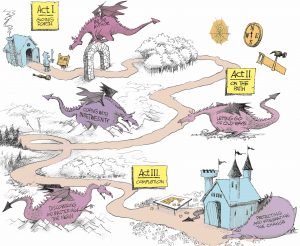You’re in the Lead Role
The Heroic Journey is a Play in Three Acts – and You Have the Lead Role
Journeys have beginnings, middles and completions. As a teenager, your journey begins as you go from the known world of childhood and cross a threshold and move into a new world with lots of unknowns, tests, friends and foes, ups and downs, etc.
Eventually, you come to a conclusion where all that you have learned and developed falls into place and you have a new known world – that of a young adult. Actually you have small completions all along the way as you put the pieces together, but at some point you realize that you have made it to young adulthood.
- Act One: How Journeys Begin – Thrown in as a teenager with the challenge to become the author of the experience
- Act Two: On the Path of Tests – the long act where most of the tests & challenges are engaged – the rollercoaster is experienced – and where resilience & perseverance are key
- Act Three: Completions – “ripple effects” and others’ responses to your changes
Note. Most of the attention will be on act one (beginnings) and act three (completions). That is because we have just looked at the challenges and tests that characterize act two (the long act on the path of tests).
Overview of Act One: Beginning the Journey
The first act is where you are challenged to leave your known world and go forth to take on the tests that lead to growth and change.
Heroic Journeys Can Start in 4 Very Different Ways
The hero can “heed a call” to go forth; they can be thrown into a journey; they can be lured into a journey; or they can blunder into a journey.
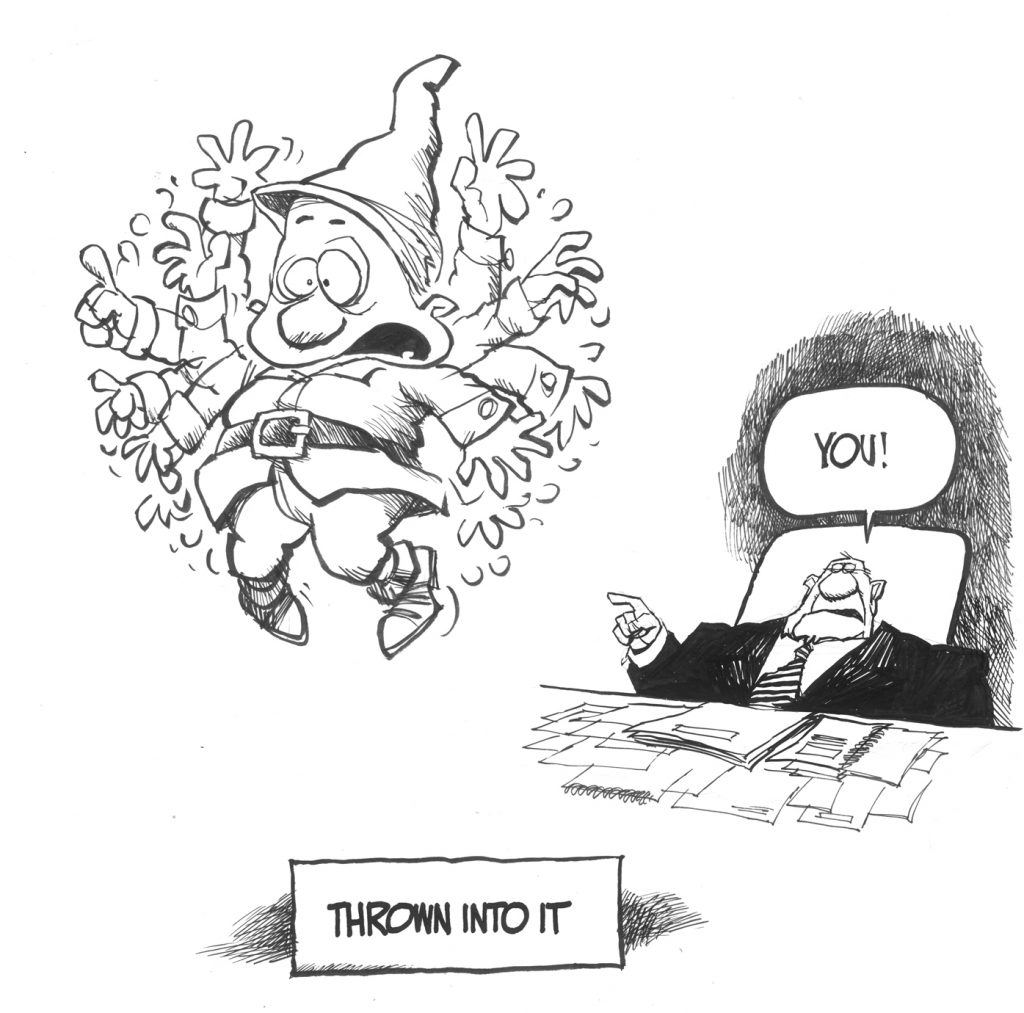

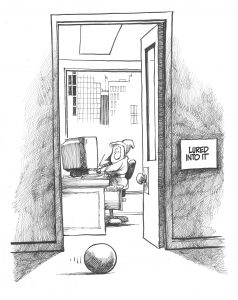
For the big developmental journey of being a teenager you get thrown into the journey. You didn’t ask for it. It just happens as a result of getting older and life saying, “Hey you, out of childhood.” So, you start the process of leaving childhood behind and start the process of figuring out how to become a young adult.
For the situational journeys, such as moves, injuries, major failures or major family events, the first act is where the specific situation calls you or throws you into a journey of change – or where you may blundered into the journey through mistakes or “screw-ups.”
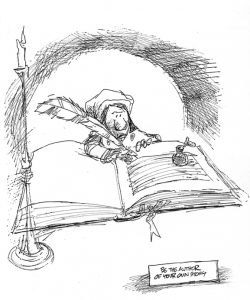
“Being the Author” – Always the Key for You
However, your journey begins, the key is getting into the posture of “being the author” of the experience as it unfolds vs. feeling like a victim or having life happen to you as it often does in childhood. You can’t get complete control, but you can exert a lot of influence over your experience. You didn’t ask for the teen journey, but you can become the author of the experience to a large degree. You can decide to take on the journey as a call to become a successful young adult. The same holds true if you blunder into a journey, such as getting arrested or addicted.
“OK, I didn’t ask for this, but I am going to be the author of
the experience as much as I can. I might have been
thrown into the journey or blundered into it. I may
even have been victimized in some way. But I am going
to become the author of my experience and I am going
to manage this journey.”
Some teenagers seem to get into more of an author role and heed the call to go forth and engage the challenges early and with purpose. Some teenagers delay answering the call, but eventually do so (thrilling parents who were becoming increasingly concerned). Some teenagers refuse the journey and don’t really get started until they get thrown in by entering the military or the work force early or by having some traumatic event “throw” them out of childhood.
This isn’t just about you. Dealing with beginnings and becoming the author is one of the most important ways you can help friends – helping them become authors.
“Guardians of the Threshold” – The First Challenge
The first challenge in taking on more of an author’s role in any journey is getting past what are called the “guardians of the threshold.” These guardians take the form of such things as inner doubts or external forces that try to turn us back right at the beginning. They are the first test and they test our readiness and worthiness to go forth. They try to stop us from taking on the author role.
The inner guardians are such things as feeling unprepared, doubting your abilities, feeling unconnected or unsupported, not feeling comfortable taking risks and trying new things, etc.
The external guardians can be anything in your world that tends to keep you in a childlike state or out of the author role. Parents not wanting to let go, peer groups that see studying or acting responsibly as uncool, a lack of support from other adults or your school, dangerous neighborhoods, etc.

Overview of Act II – On the Path
The second act – the really long act – is called “the trail of tests.” Moving through the land that lies on the other side of the threshold – into the heart of a journey – you are faced with tests and trials that usually require new or altered ways of perceiving, thinking, and acting.
Most of the Action is “On the Path”
And that’s a long time for the developmental journey of teenagers. This is where you encounter the core challenges of Identity, Relationships and Competencies, become more and more mature and complete and find ways to take care of yourself on the journey.
This is where you must let go of old ways, discover and master new ways and deal with “inbetweenity”. This is where perseverance, finding support, and taking care of yourself becomes critical.
This is where you can be tested on physical, intellectual, emotional, social and spiritual levels.
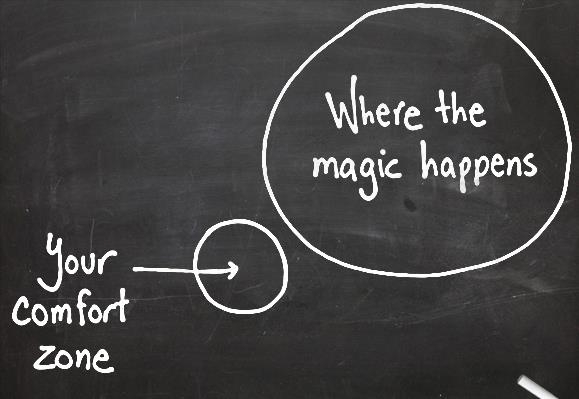
Heroes Don’t Go Alone
They don’t in the stories and films and we don’t in real life journeys of change. One of the most important sets of competencies to develop is the ability to take care of yourself and to build a support network.
The people in your life (adults and peers) and the roles they play will be critical for you on this journey. This second act of the journey can play out for a long time, so your support network will take time to build and attention to maintain.
Along with people you can build in activities, places of rest and renewal, symbols that inspire you, habits like exercise and eating well, etc.
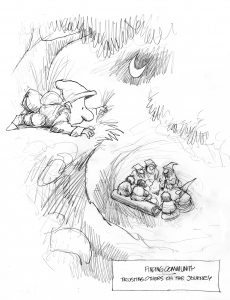
Your Perseverance & Resilience Build
It is in this act – on the path – where perseverance becomes critical as does the ability to develop resilience to recover from the inevitable setbacks and injuries.
Overview of Act III – Completions
When you successfully meet the challenges of the journey the final phase is some form of completion. In the heroic myths, this is when the hero returns to the kingdom with the gifts he or she has discovered or recovered.
As a teenager, the big “return” or “completion” is simply reaching the maturity of young adulthood – having really left childhood behind.
The reality is that there will be a bunch of smaller completions along the way that add up to that sense of having become a young adult. For us, “completions” is the completion of any significant change on the path.
You are More Complete – More Mature
There are lots of small changes that happen along the path and there are some big ones related to the three core challenges. You may see your identity as a young adult emerge, with an increased sense of self-awareness, purpose and confidence/acceptance.
You may see your relationships become deeper and healthier – having learned how to be a good friend, a boy/girlfriend or a rebalancing of your relationship with your parent(s).
You may also see the set of competencies that you have mastered reach a point where you suddenly have an increased sense of confidence that you can go forth into the adult world and succeed without a lot of parental support and guidance.
These are all good things – but they come with a surprising challenge.
The Main Challenge is Called the “Ripple Effect”
That is what happens to others as you change. As you become more mature and more complete as a person, your changes may require changes in others and that can be resisted – it often is. 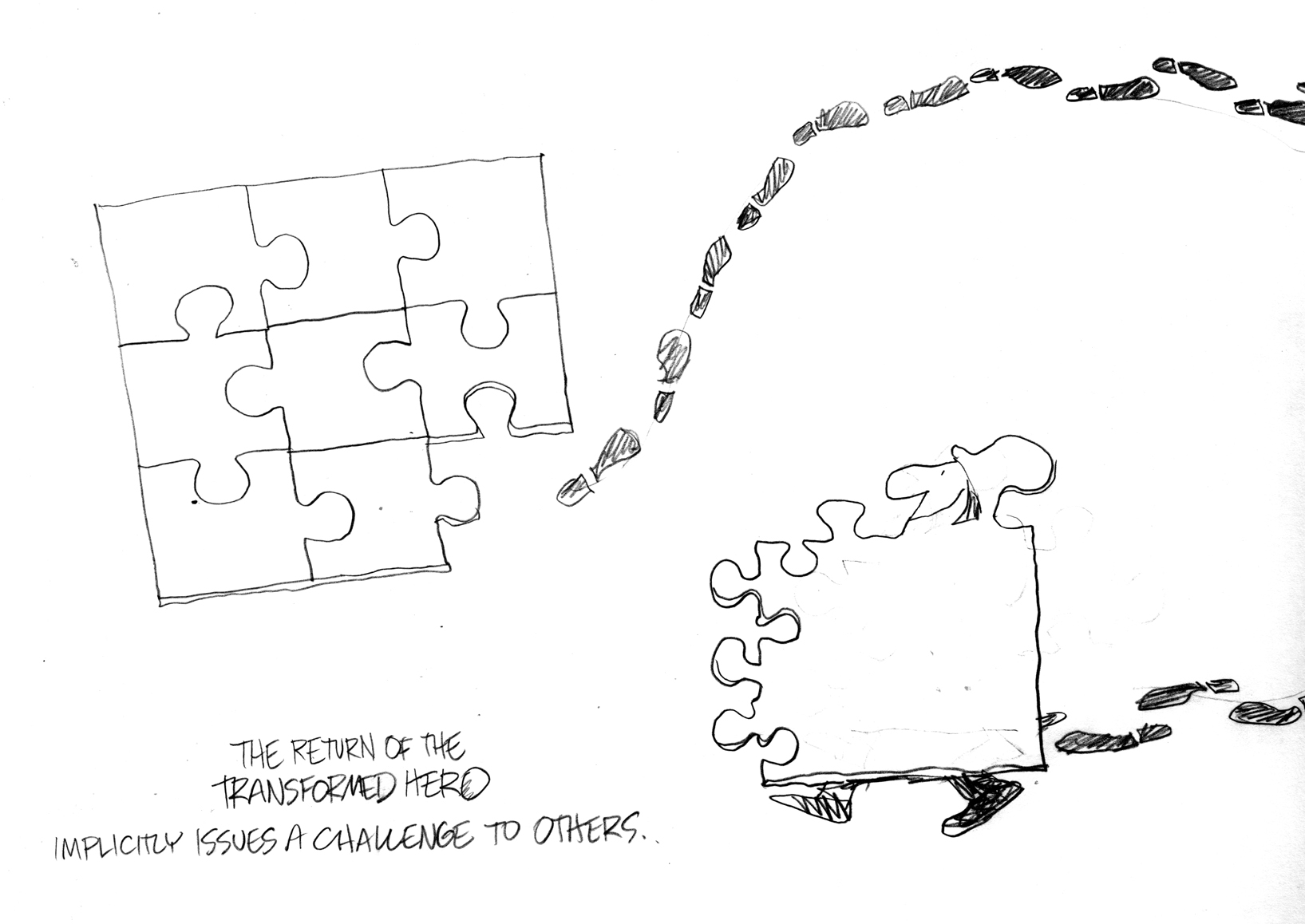
This is Particularly Important in Your Relationships
For instance relationships with parents or friends or romantic relationships can be affected by your growth and changes.. Relationships are like puzzle pieces that fit together (in healthy or unhealthy ways). As you change, that affects the “fit” of your relationships and others either change to adapt to your growth or the relationship doesn’t work as it once did. Sometimes that’s good as you get out of less healthy relationships, but sometimes it’s really hard.
The Other Challenge – the “New Me”
As you become more and more mature is getting used to being more mature – more complete. Your identity and what seems normal to you has to catch up. Sometimes you might not feel like you anymore – but you catch up with yourself and settle in.
There are Four Possible Responses of Others to Your Growth
People or groups of which you are a part can have four responses to your changes and you will experience some of them and maybe all of them at one time or another. Friends, parents, girlfriends/boyfriends, even coaches and neighbors sometimes will have a choice. They can:
- Try to get you to go back and fit into your old ways, so they don’t have to change to fit the new you
- Ignore you or shut you out
- Drive you away or leave you
OR - Accept your changes and change so that they fit with you in more mature ways
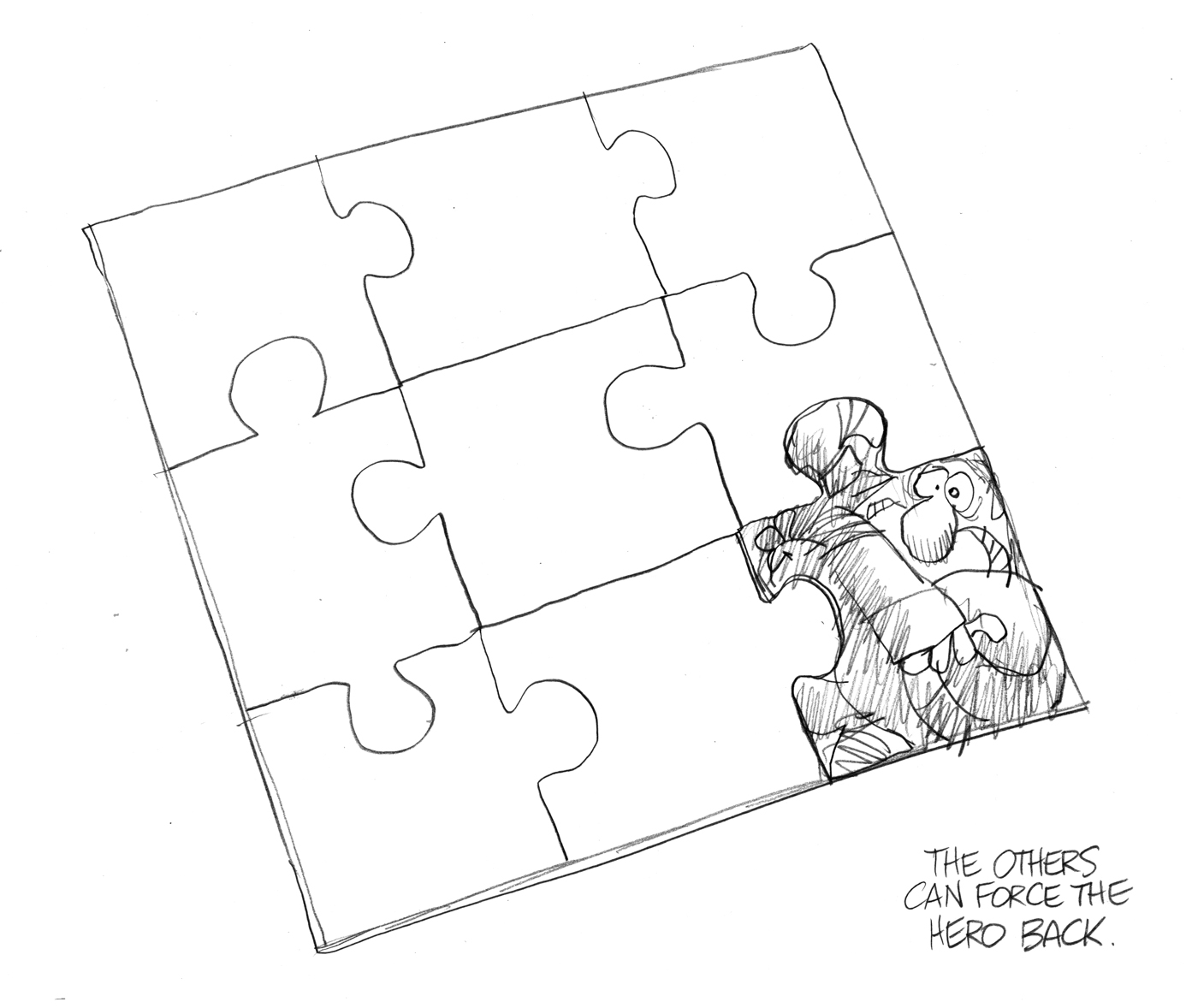


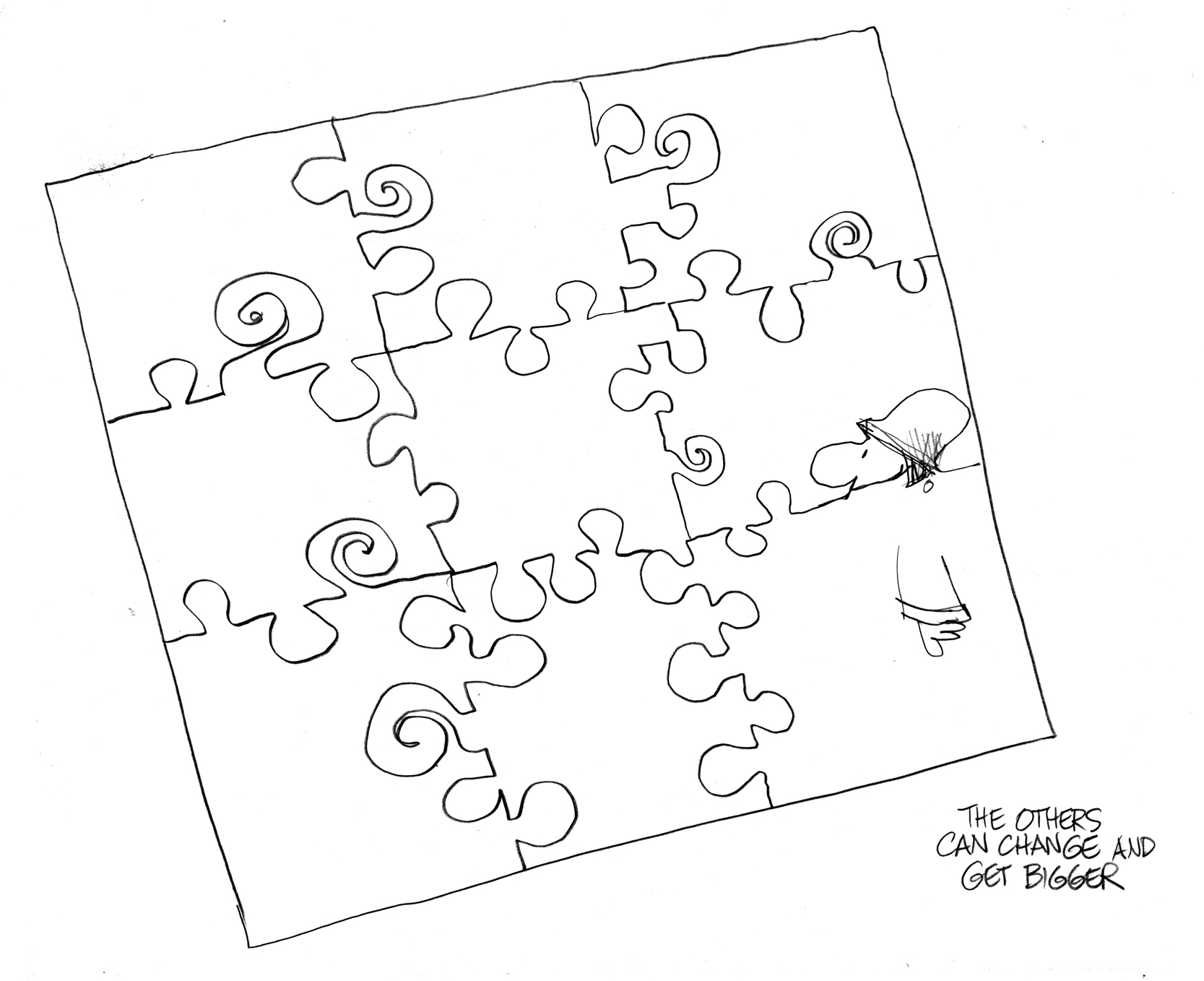
Eight Natural Pitfalls to Deal with on the Journey
You will encounter these pitfalls – they are a natural part of the journey. Sometimes you will avoid them, sometimes you will fall in. but get out quickly and sometimes you will fall into a pitfall frequently or get stuck in it for a while.
1. Just letting life happen to you – failing to become the author
Being the author can involve planning and getting ahead of life. It can also involve determining how to respond when life happens. The sections on the three core challenges (identity, relationships and competencies) and on what to do about it are both designed to help get ahead of life.
But the world is a big place and we can’t control it, so sometimes life just happens to us. Sometimes life thrusts opportunities on us. Do we respond and pursue them? Sometimes life confronts us with threats, failures, injuries, etc. How do we respond to them? When victimized – and everyone is victimized at times (sometimes in big and sometimes in small ways) – do we stay victims or fight back to recover?
2. Holding on to childhood ways – staying dependent on adults – failing to take on responsibility
There are some great things about being a child. People take care of you (hopefully). You don’t have to take much responsibility for your actions. Friendships are not too demanding. You learn how to do things (competencies), but the pace is reasonable. Not too much is expected of you (hopefully).
Letting go of all that as a teenager is not easy. Some of these childhood ways are easier to let go of than others, but there are a surprising number of important aspects of being a child and it can take quite a while to let go of some of them.
The questions is always, “Am I being the author or letting others be the author of my life?”
 3. Failing to discover and learn the new ways of being a young adult – or giving up too soon
3. Failing to discover and learn the new ways of being a young adult – or giving up too soon
More competencies have to be developed in the teen years than at any other point in life. Some are intellectual, some physical, some emotional, some social, etc. It takes a lot of commitment, energy and effort to develop these competencies. It is easy to get discouraged along the way, so remembering that it’s a journey with ups and downs and developing the ability to be resilient and persevere is key.
4. Letting the goofiness of “inbetweenity” get you down or wear you out
Being a teenager means having one foot in childhood and one foot in young adulthood for a long time. There are lots of conflicting experiences along the path – being organized and disorganized, being confident and anxious, feeling oriented and disoriented, feeling like you’ve found your place and feeling adrift, feeling connected and disconnected, etc. The fact that it’s normal doesn’t mean that it’s easy.
5. Failing to persevere and build resilience while being tested
Being a teenager is not easy. It can be great, but it’s a long journey with lots of challenges and ways of being tested. It’s not easy sometimes to keep putting one foot in front of the other or getting back up when you’re knocked down. Sometimes it’s just a matter of finding the will to persevere or developing the ability to be resilient.
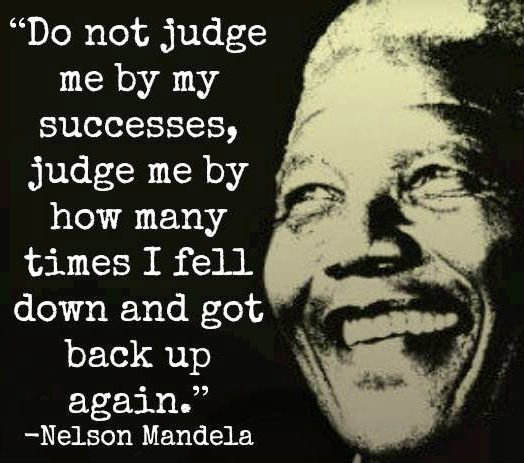
6. Not taking the actions to connect with others (“networking”) – individuals, groups, organizations
Some teenagers are good at making connections and some are not. Likewise, some environments make it easier to connect than others. It’s easy to have too few connections or lose connections along the path. It’s often not easy to build connections, but it’s critical to do so – even if uncomfortable and not always successful. Even if it doesn’t seem so, there are a surprising number of potential connections – with individuals, groups or organizations.
7. Not taking care of yourself on the journey
Self-care is one of the key competencies to develop on the journey, but it is rarely taught and it’s easy to overlook. One key is managing risky behavior to avoid the extremes. Another is simply figuring out how to find the sources of life energy, get enough rest, eat well, etc. It’s not rocket science, but it does take attention and some commitment to care for yourself.
8. Forgetting to enjoy the good times and successes – even the little ones
Remember, it’s a rollercoaster and it’s easy for the tough times to get most of the attention. Don’t focus too much on the “downs. Remember to keep a focus on the successes, progress, fun, caring, insights, things falling into place, etc.

